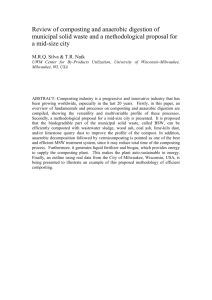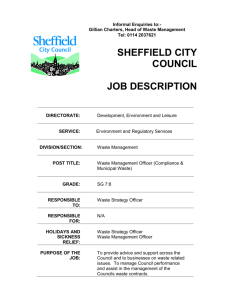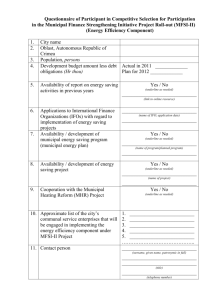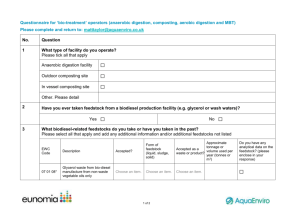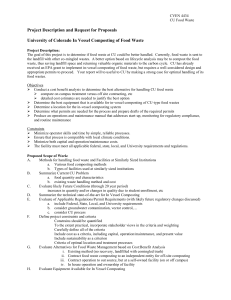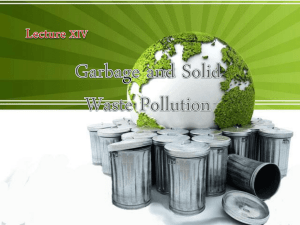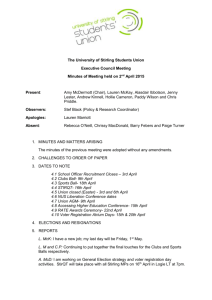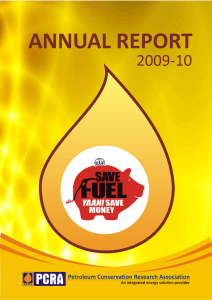Networking with various Municipal Authorities
advertisement
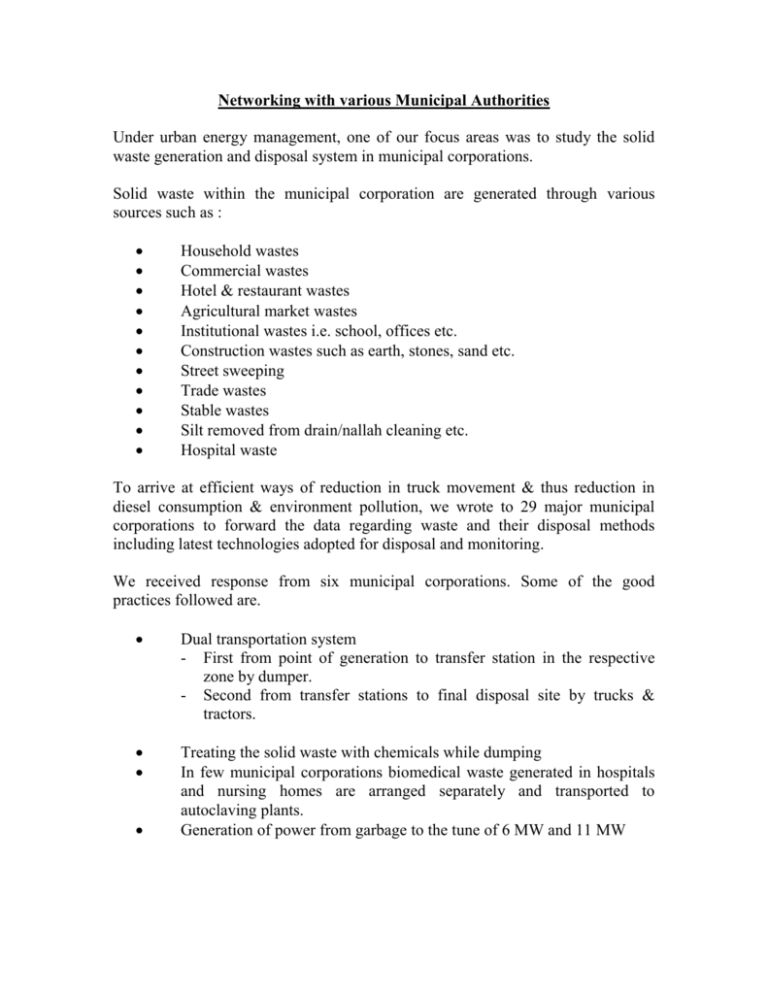
Networking with various Municipal Authorities Under urban energy management, one of our focus areas was to study the solid waste generation and disposal system in municipal corporations. Solid waste within the municipal corporation are generated through various sources such as : Household wastes Commercial wastes Hotel & restaurant wastes Agricultural market wastes Institutional wastes i.e. school, offices etc. Construction wastes such as earth, stones, sand etc. Street sweeping Trade wastes Stable wastes Silt removed from drain/nallah cleaning etc. Hospital waste To arrive at efficient ways of reduction in truck movement & thus reduction in diesel consumption & environment pollution, we wrote to 29 major municipal corporations to forward the data regarding waste and their disposal methods including latest technologies adopted for disposal and monitoring. We received response from six municipal corporations. Some of the good practices followed are. Dual transportation system - First from point of generation to transfer station in the respective zone by dumper. - Second from transfer stations to final disposal site by trucks & tractors. Treating the solid waste with chemicals while dumping In few municipal corporations biomedical waste generated in hospitals and nursing homes are arranged separately and transported to autoclaving plants. Generation of power from garbage to the tune of 6 MW and 11 MW Our 1st data book in this direction will come out in Sept 04 and thereafter every six months. One of the highlights received was data from Municipal Corporation, Hyderabad regarding generation of power from garbage which can be used by municipal corporation itself. This information will be used in our data book as well as in programme “Boond Boond Ki Baat” and “Khel Khel Main Badlo Duniya”. This information will also to shared with other municipal corporation. As a second step, we associated with Municipal Corporation Delhi (MCD) and following activities have been taken up together : (i) (ii) (iii) (iv) (v) MCD has entrusted PCRA to train all its drivers. MCD has a fleet of about 600 trucks along with their drivers. PCRA has been supporting MCD in its program for solid waste which is generated everyday in Delhi, and transported by about 450 trucks. These trucks make about 2000 trips everyday & consume enormous amount of diesel. PCRA conducted a training program on 10.10.03 for top officials of major hoteliers for providing them inputs in solid waste management (SWM), environment protection & Energy saving. The programme covered. a. Inputs for management on solid waste in hotels & manage entire waste within hotel boundaries. Technology and methodology were explained. b. Newly developed energy efficient kitchen burners through R&D were shown to them and benefits explained. This would help in saving of LPG and reduction of pollution. c. Energy saving methodology was also explained for air conditioning & other areas in the hotels. d. Usage of grease traps was also explained to reduce pollution. e. New energy saving device “SONA-ESD’ was demonstrated to them to reduce gas and pollution. PCRA explained the methodology to all 300 members of RWAs during Bhagidari meeting in Sep 2003 for vermi culture for SWM and biocomposting of biodegradable waste. Films of Vermi composting were also screened. Equipment for vermi composting was displayed and technology and methodology explained in detail. These were extremely well received. RWAs were given training in separate sessions on vermi composting. Equipment was displayed for explaining the methodology. In another meeting training was provided to about 350 members from various RWAs, on composting of biodegradable waste thru modern technology of enzyme de- composting. (vi) Films on bio composting have been specially prepared for screening in such MCD programs. (vii) Special brochures have been developed and printed on vermi composting for distribution in such MCD programs. (viii) CDs containing films on bio- composting for solid waste have been developed and given for distribution to MCD for such programs. Distribution of approx. 15000 brochures and CDs has been planned. (ix) In all these programs, the resident are also given tips and shown films on gas, petrol & diesel saving. This helps in energy saving and environment protection. MCD has entrusted PCRA to undertake 12 training programs on SWM which will have about 350 participants each from different RWAs. Training programs have commenced from June 04. As third step, we had interaction with Noida Authority on various aspects of urban energy management where PCRA is willing to associate, such as energy audit of office building, drinking water supply system, sewage system & street lighting system, also solid waste management, signaling system, study of speed breaker system etc.
